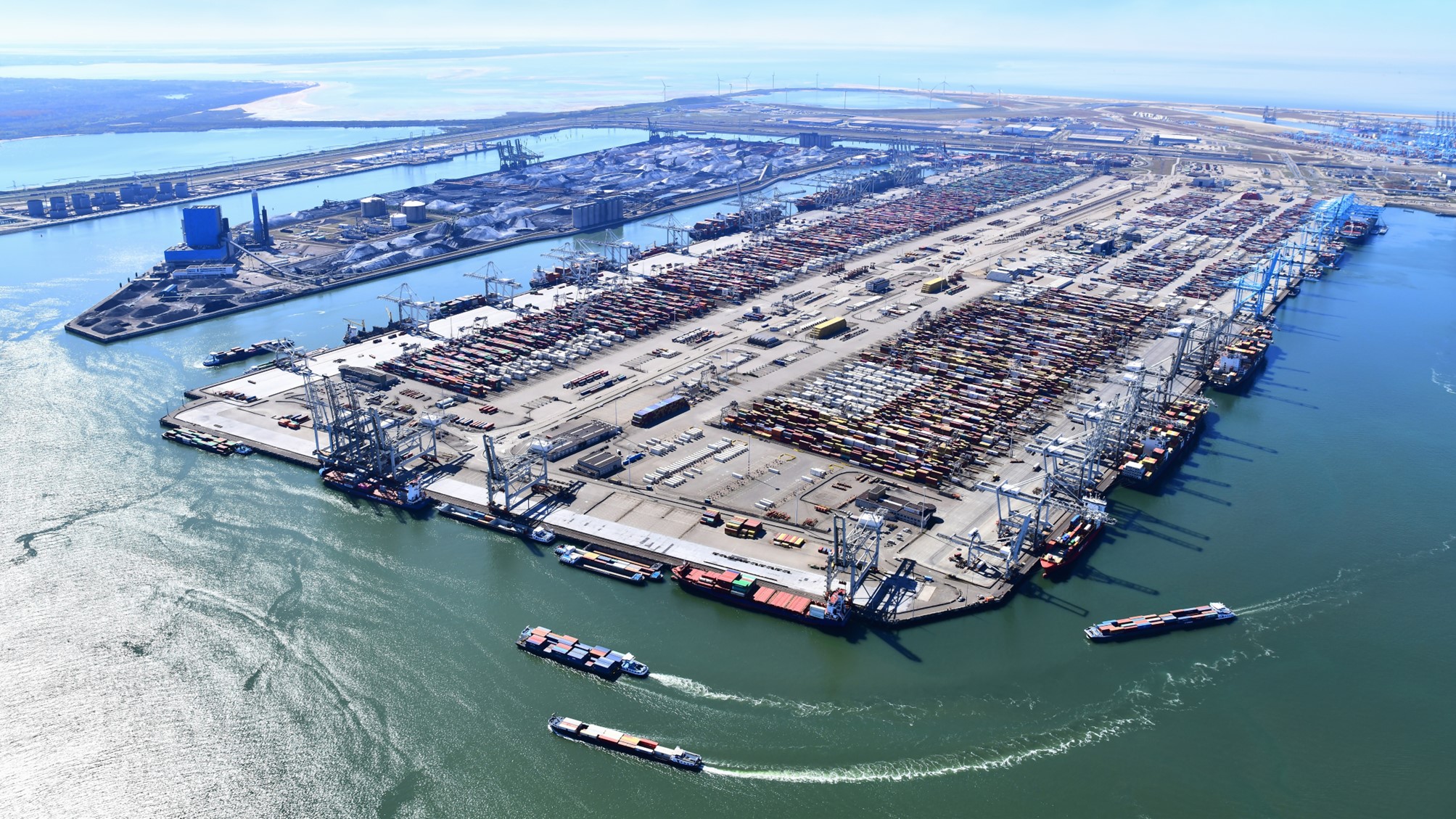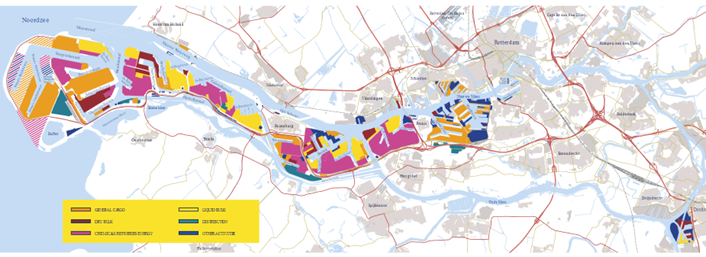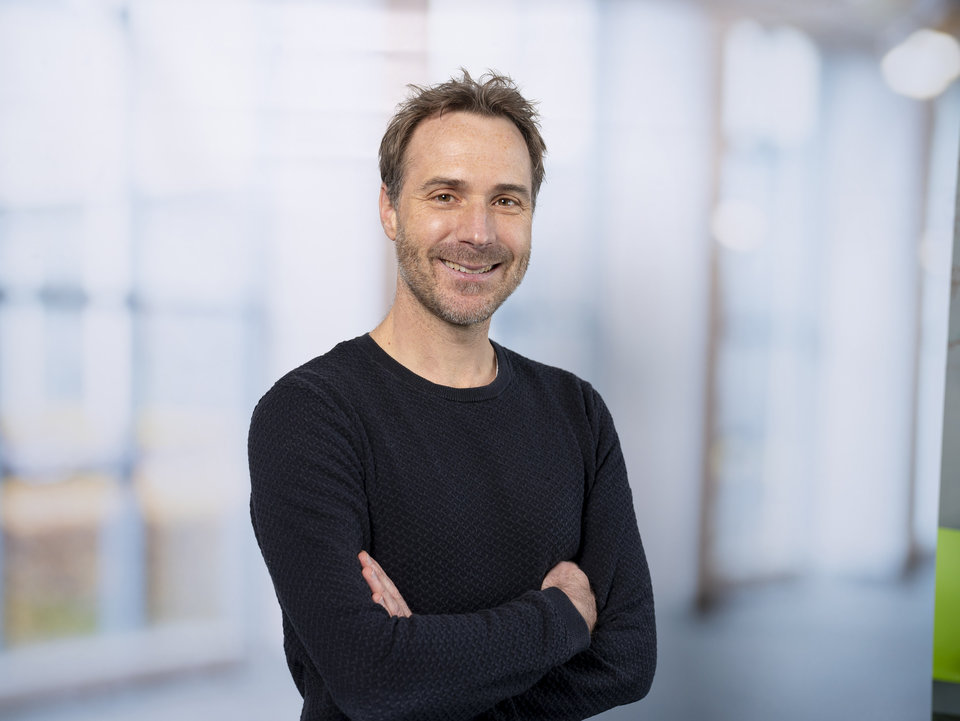Ports & Waterways Infrastructure Lab (PWI Lab)
The "Ports and Waterways Infrastructure Lab" serves as the core of maritime operations, with a primary focus on all the physical elements that emphasize both the efficiency and the sustainability of waterborne transport. Here, we dive deep into the intricate interactions between the water transport system and the surrounding environment, seeking to enrich our understanding and expertise of the essential infrastructures that support global trade.
At the heart of our lab's mission is the comprehensive examination of port infrastructures, including terminals, berths, quays, and all their associated facilities. Our team of experts dedicates itself to every phase of the infrastructure lifecycle, from initial planning and innovative design to precise construction and ongoing maintenance.
We fully support the demands of the maritime industry in efficient, adaptable, and sustainable infrastructures. To meet the evolving needs, we explore innovative port layout planning and berth design, analyzing in depth the interaction between the water transport system, the infrastructure, and the surrounding environment and taking into account the dynamic nature of the industry. We also analyze in detail the current state of existing infrastructures: our final aims are both extending the longevity and preparing ports and waterways to face the future challenges coming from both the further development of maritime traffic and global warming.
We are committed to developing strategies and methods to mitigate negative environmental impacts, ensuring environmentally responsible port operations. Moreover, our lab is at the forefront of developing new technologies for the inspection and maintenance of port and waterway infrastructure. We understand that proactive maintenance is critical for the longevity and reliability of these vital structures. By incorporating advanced inspection technologies, we aim to create resilient, efficient, and long-lasting port infrastructure that can withstand the test of time and the demands of global trade.
The efforts of the "Ports and Waterways Infrastructure Lab" play a key role in enhancing port operations, culminating in cost-effective and sustainable facilities that support the seamless flow of goods and materials. Our commitment to innovation, sustainability, and adaptability ensures that the backbone of maritime operations always remains robust, resilient, and future-ready, facilitating the continued growth and success of the global trade industry.
Research Programs
Research conducted within the Ports & Waterways’ labs is dedicated to advancing innovation, with a focus on economically viable, socially responsible, and environmentally sustainable maritime design and operations, including its logistic chains. Our research is often carried out in close collaboration with other faculties TU Delft and organizations such as Port of Rotterdam, Rijkswaterstaat, Deltares, consulting firms, and contractors.
The Ports & Waterways Infrastructure Lab has been actively engaged in several research programs, contributing to the development and improvement of maritime operations:
• Port Research Centre Rotterdam – Delft (PRC)
• Rijkswaterstaat Inland Waterways
• Integral Planning of Delta (IPOD)
• Delft Infrastructures and Mobility Initiative (DIMI)
• PATH2ZERO
Port Research Centre Rotterdam (PRC) – Delft
PRC Delft University of Technology carries out research on topics that are relevant to the Port of Rotterdam (PoR). During the past years, this generated very innovative concepts, such as the foldable container and the Floating Container Crane, which are presently being developed. However, the program also gives opportunities for MSc studies to be carried out at PoR.
Rijkswaterstaat Inland Waterways
Presently, inland water transport has to face changes due to the increasing transport of cargo over water, a shift to more container transport, and changes in ship dimensions. Moreover, international developments offer challenges to connect European regions. Therefore, Rijkswaterstaat and TU Delft started to develop ideas on how to maintain the functions and structure of the inland navigation system. The intention of the discussions is to realize a long-term cooperation that benefits inland navigation.
Integral Planning of Delta (IPOD)
Deltas are the areas where urbanization and economic development take place rapidly and on a massive scale. However, these areas are often vulnerable to flooding and urbanization increases the pressure on the natural habitats in these areas. There is a worldwide demand for a planning method that can contribute to a balanced development between safety, ecological value, economic growth, and quality of the living environment. IPOD was a research about the planning and design methods in the southwestern Dutch delta.
Delft Infrastructures and Mobility Initiative (DIMI)
DIMI is a research involving different faculties of the Delft University of Technology. It focuses on the research areas of water and transport-related infrastructure and mobility. Ports & Waterways Labs do research under the branch of Sustainable Mainports and Hubs. The research is about the Port of the Future. In the long-term plan of the Port of Rotterdam, the port wants to be the most sustainable port in the world. How can this be achieved and what can be expected of future economic developments?
PATH2ZERO
The PATH2ZERO project aims to guide the transition to zero-emission practices in inland shipping by involving key stakeholders like skippers, shippers, and funding institutions. This is accomplished through the creation of a digital twin, a virtual replica of the inland shipping system, which assesses the efficiency of zero-emission strategies. The digital twin models three essential components: Individual Vessels, Logistic Chains, and Infrastructure.
The project considers various interventions, from innovative vessel technologies to policy measures. It also allows stakeholders to test different future scenarios for the most efficient path to zero-emission shipping.
Furthermore, there are various Ph.D. studies ongoing at the lab:
- Implications of nature-based SALTIsolutions for port logistics
- RWS, investigating the impact of container transport on IWT
- Path2Zero - Design of bunker infrastructure
Every year, our research labs host several intriguing Master's projects. Here, you can see a few selected ones:
Tutorials
Ports and Waterways Design videos - Functional Design of Liquid Bulk Terminals
Peter Quist, Poonam Taneja & Mark van Koningsveld (2019)
Link: https://data.4tu.nl/articles/_/12676079/1
Ports and Waterways Design videos - Functional Design of Locks
Arne van der Hout, Poonam Taneja & Mark van Koningsveld (2019)
Link: https://data.4tu.nl/articles/_/12717470/1
Ports and Waterways Design videos - Functional Design of Marinas
Gosse de Boer, Joost Lansen, Poonam Taneja & Mark van Koningsveld (2019)
Link: https://data.4tu.nl/articles/_/12687626/1
Ports and Waterways Design videos - Planning and Design of Port Water Areas
Joost Lansen, Poonam Taneja & Mark van Koningsveld (2019)
Link: https://data.4tu.nl/articles/_/12707075/1
Team
The "Ports and Waterways Infrastructure Lab" serves as the core of maritime operations, with a primary focus on all the physical elements that emphasize both the efficiency and the sustainability of waterborne transport. Here, we dive deep into the intricate interactions between the water transport system and the surrounding environment, seeking to enrich our understanding and expertise of the essential infrastructures that support global trade.
At the heart of our lab's mission is the comprehensive examination of port infrastructures, including terminals, berths, quays, and all their associated facilities. Our team of experts dedicates itself to every phase of the infrastructure lifecycle, from initial planning and innovative design to precise construction and ongoing maintenance.
We fully support the demands of the maritime industry in efficient, adaptable, and sustainable infrastructures. To meet the evolving needs, we explore innovative port layout planning and berth design, analyzing in depth the interaction between the water transport system, the infrastructure, and the surrounding environment and taking into account the dynamic nature of the industry. We also analyze in detail the current state of existing infrastructures: our final aims are both extending the longevity and preparing ports and waterways to face the future challenges coming from both the further development of maritime traffic and global warming.
We are committed to developing strategies and methods to mitigate negative environmental impacts, ensuring environmentally responsible port operations. Moreover, our lab is at the forefront of developing new technologies for the inspection and maintenance of port and waterway infrastructure. We understand that proactive maintenance is critical for the longevity and reliability of these vital structures. By incorporating advanced inspection technologies, we aim to create resilient, efficient, and long-lasting port infrastructure that can withstand the test of time and the demands of global trade.
The efforts of the "Ports and Waterways Infrastructure Lab" play a key role in enhancing port operations, culminating in cost-effective and sustainable facilities that support the seamless flow of goods and materials. Our commitment to innovation, sustainability, and adaptability ensures that the backbone of maritime operations always remains robust, resilient, and future-ready, facilitating the continued growth and success of the global trade industry.
Research Programs
Research conducted within the Ports & Waterways’ labs is dedicated to advancing innovation, with a focus on economically viable, socially responsible, and environmentally sustainable maritime design and operations, including its logistic chains. Our research is often carried out in close collaboration with other faculties TU Delft and organizations such as Port of Rotterdam, Rijkswaterstaat, Deltares, consulting firms, and contractors.
The Ports & Waterways Infrastructure Lab has been actively engaged in several research programs, contributing to the development and improvement of maritime operations:
• Port Research Centre Rotterdam – Delft (PRC)
• Rijkswaterstaat Inland Waterways
• Integral Planning of Delta (IPOD)
• Delft Infrastructures and Mobility Initiative (DIMI)
• PATH2ZERO
Port Research Centre Rotterdam (PRC) – Delft
PRC Delft University of Technology carries out research on topics that are relevant to the Port of Rotterdam (PoR). During the past years, this generated very innovative concepts, such as the foldable container and the Floating Container Crane, which are presently being developed. However, the program also gives opportunities for MSc studies to be carried out at PoR.
Rijkswaterstaat Inland Waterways
Presently, inland water transport has to face changes due to the increasing transport of cargo over water, a shift to more container transport, and changes in ship dimensions. Moreover, international developments offer challenges to connect European regions. Therefore, Rijkswaterstaat and TU Delft started to develop ideas on how to maintain the functions and structure of the inland navigation system. The intention of the discussions is to realize a long-term cooperation that benefits inland navigation.
Integral Planning of Delta (IPOD)
Deltas are the areas where urbanization and economic development take place rapidly and on a massive scale. However, these areas are often vulnerable to flooding and urbanization increases the pressure on the natural habitats in these areas. There is a worldwide demand for a planning method that can contribute to a balanced development between safety, ecological value, economic growth, and quality of the living environment. IPOD was a research about the planning and design methods in the southwestern Dutch delta.
Delft Infrastructures and Mobility Initiative (DIMI)
DIMI is a research involving different faculties of the Delft University of Technology. It focuses on the research areas of water and transport-related infrastructure and mobility. Ports & Waterways Labs do research under the branch of Sustainable Mainports and Hubs. The research is about the Port of the Future. In the long-term plan of the Port of Rotterdam, the port wants to be the most sustainable port in the world. How can this be achieved and what can be expected of future economic developments?
PATH2ZERO
The PATH2ZERO project aims to guide the transition to zero-emission practices in inland shipping by involving key stakeholders like skippers, shippers, and funding institutions. This is accomplished through the creation of a digital twin, a virtual replica of the inland shipping system, which assesses the efficiency of zero-emission strategies. The digital twin models three essential components: Individual Vessels, Logistic Chains, and Infrastructure.
The project considers various interventions, from innovative vessel technologies to policy measures. It also allows stakeholders to test different future scenarios for the most efficient path to zero-emission shipping.
Furthermore, there are various Ph.D. studies ongoing at the lab:
- Implications of nature-based SALTIsolutions for port logistics
- RWS, investigating the impact of container transport on IWT
- Path2Zero - Design of bunker infrastructure
Every year, our research labs host several intriguing Master's projects. Here, you can see a few selected ones:
Tutorials
Ports and Waterways Design videos - Functional Design of Liquid Bulk Terminals
Peter Quist, Poonam Taneja & Mark van Koningsveld (2019)
Link: https://data.4tu.nl/articles/_/12676079/1
Ports and Waterways Design videos - Functional Design of Locks
Arne van der Hout, Poonam Taneja & Mark van Koningsveld (2019)
Link: https://data.4tu.nl/articles/_/12717470/1
Ports and Waterways Design videos - Functional Design of Marinas
Gosse de Boer, Joost Lansen, Poonam Taneja & Mark van Koningsveld (2019)
Link: https://data.4tu.nl/articles/_/12687626/1
Ports and Waterways Design videos - Planning and Design of Port Water Areas
Joost Lansen, Poonam Taneja & Mark van Koningsveld (2019)
Link: https://data.4tu.nl/articles/_/12707075/1












